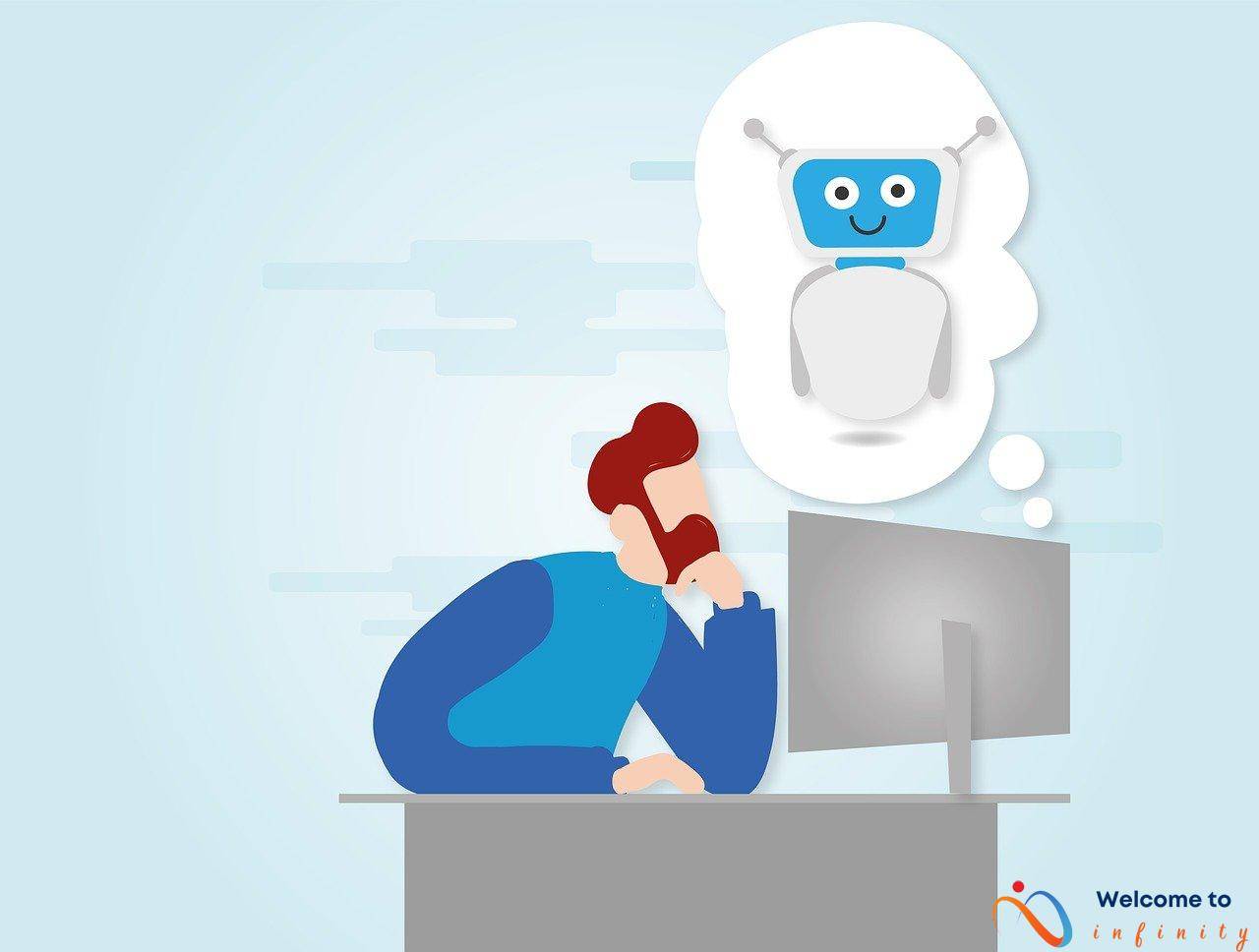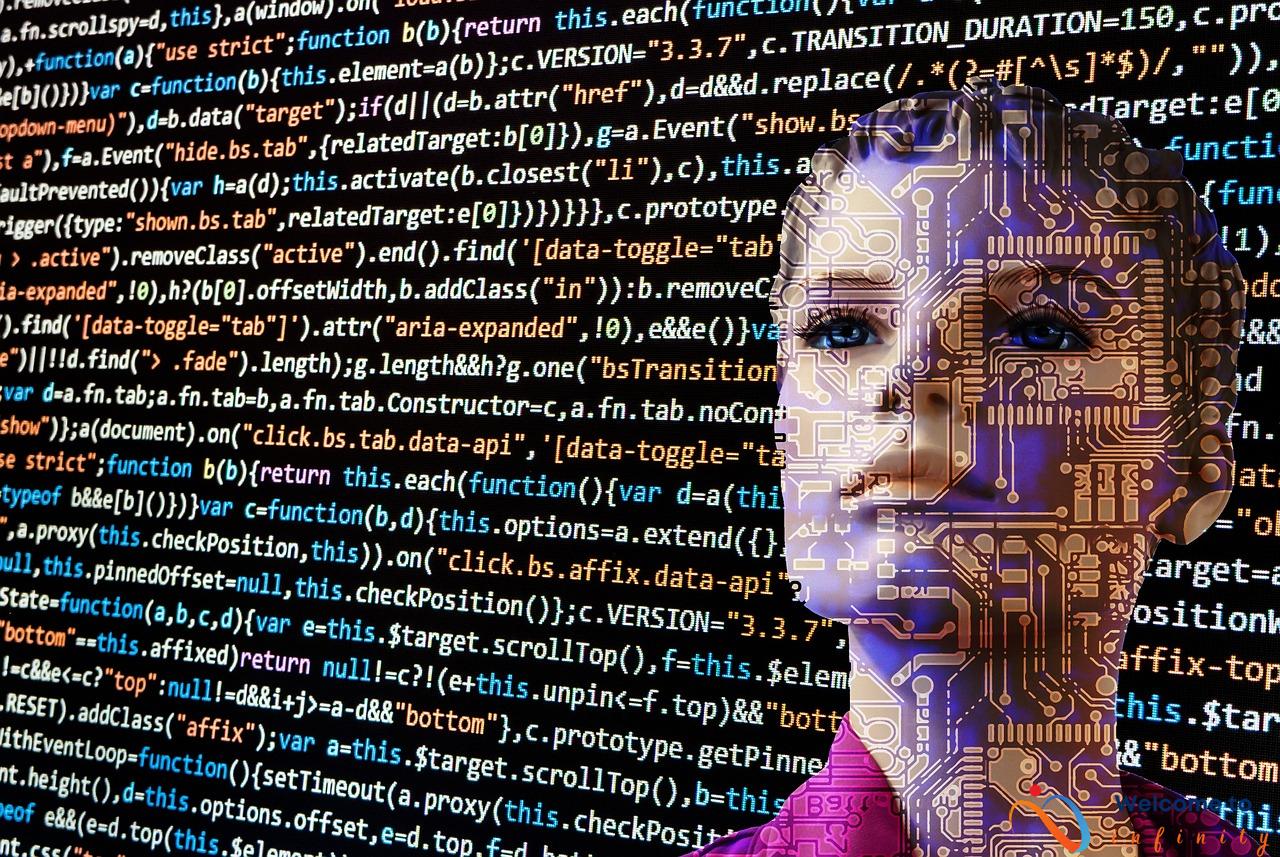the pharmaceutical industry faces significant challenges in drug discovery and development, including high costs, low success rates, and long lead times. To address these challenges, artificial intelligence (AI) is playing an increasingly vital role in drug discovery.
AI is a new and innovative approach that can help researchers analyze vast amounts of data and identify potential drug targets quickly and efficiently. By using AI in drug discovery, researchers can accelerate the development of new drugs and bring them to market faster, helping to address real-world health challenges that demand rapid solutions.
Through new AI models, researchers can analyze large datasets to identify new drug targets quickly and accurately. These models can also prioritize safety and efficacy, helping to ensure that new drugs are safe for patients. Additionally, AI can help predict potential drug efficacy based on genetic, molecular, and clinical data, providing researchers with insights that were previously unaccessible.
With the integration of AI technology, the pharmaceutical industry can expect to transform the drug discovery and development process significantly. By improving efficiency, productivity, and success rates, AI-guided drug discovery and development processes will accelerate the identification of new drugs, making them more cost-effective and accessible to the people who need them.
In conclusion, the use of AI technology in drug discovery and development holds immense potential to revolutionize the pharmaceutical industry and ultimately improve patient outcomes by helping to develop drugs more quickly and safely than ever before.
The Role of AI in Drug Discovery
The use of AI in drug discovery is a game-changer as it has the potential to speed up the discovery and development of new drugs which otherwise would take many years. With the help of AI, researchers can analyze vast amounts of data and identify potential drug targets, making the process more efficient and cost-effective.
The role of AI in drug discovery is critical as it can help in the identification of new drug targets that were previously undiscovered. The traditional approach of developing new drugs required a lot of trial and error, which was time-consuming and expensive. However, with AI, researchers can analyze large datasets and identify new potential targets for specific diseases.
Additionally, AI has the ability to learn and adapt, which allows it to provide more accurate predictions and improved outcomes. By analyzing complex sets of data, AI can help researchers identify patterns and relationships that might not be visible to the naked eye. Furthermore, AI can also help in the prediction of clinical outcomes based on genetic, molecular, and clinical data. This means that scientists can more accurately predict the effectiveness of certain drugs and the likelihood of side effects.
The development of new drugs is a long and tedious process, but the use of AI in drug discovery can potentially reduce the time by providing more efficient solutions. With the help of AI, researchers can conduct experiments and simulations on computers instead of physically conducting experiments on animals or humans. This can speed up the development process and eliminate risks associated with trials.
Challenges Facing Drug Discovery
Drug discovery is a complex process that involves extensive research, testing, and trials. However, the process is hampered by several challenges that can hinder the development of new drugs. One significant challenge is the high costs associated with drug discovery and development. Extensive research and clinical trials are required to develop new drugs, and this process is costly.
In addition to high costs, the success rate of drug discovery is also low, with only a few drugs approved after extensive research and trials. The low success rate is attributed to the complexity of the process and the difficulty in identifying potential drug targets. Furthermore, the drug discovery process requires a significant amount of time, and it may take a decade or more to develop and launch a new drug.
These challenges are magnified by the COVID-19 pandemic, which has increased the urgency to develop new drugs. The pharmaceutical industry requires an innovative approach that can help speed up the drug discovery process while maintaining high levels of safety and efficacy. Hence, the adoption of Artificial Intelligence (AI) in drug discovery is an essential step towards addressing these challenges.
High Costs
Drug discovery and development is a long and expensive process that involves extensive research and clinical trials. The high costs linked to these processes are attributed to the need for cutting-edge technologies and equipment, trained personnel, and regulatory compliance.
Pharmaceutical companies incur high expenses in the early stages of drug development, where a significant amount of capital is spent on research and concept testing. These initial stages involve identifying potential drug targets and optimizing chemical compounds by testing for efficacy and toxicity. Exploratory research and preclinical testing can take years to complete and can cost hundreds of millions of dollars.
Clinical trials, which constitute a significant portion of drug development costs, involve testing new drugs on humans to determine their safety, efficacy, and optimal dosage. These trials can take several years to complete and require significant resources, including human resources, equipment, and infrastructure. Regulatory compliance is also critical, with each trial being subject to rigorous standards and oversight by regulatory authorities.
In summary, the high costs associated with drug discovery and development are due to the complex and resource-intensive process involved, making it a considerable challenge for pharmaceutical companies to bring new drugs to market.
Low Success Rates
Drug discovery and development is a challenging and time-consuming process that requires extensive research and clinical trials. Unfortunately, the success rate of drug discovery is low, with only a small percentage of drugs approved after lengthy research and trials. This issue is a major concern for the pharmaceutical industry, as high drug development costs are not proportional to their success rates.
Low success rates in drug discovery are often attributed to the complexity and diversity of diseases, which make it challenging to identify effective drug targets. Additionally, the lack of predictability and certainty in the clinical setting makes it difficult to predict the potential efficacy of a drug candidate. This uncertainty is exacerbated by the lengthy process required to develop a drug from discovery to commercialization.
However, the integration of AI in drug discovery is providing a solution to the challenge of low success rates. AI models can analyze vast amounts of data from various sources, such as genetic, molecular, and clinical data, to help identify potential drug targets and predict their efficacy. This approach has increased the efficiency and effectiveness of the drug discovery process, leading to a higher success rate in identifying potential drug candidates.
AI is also enabling drug discovery scientists to analyze the relationships between different factors, such as cell signaling pathways, drug efficacy, and toxicity. This data helps in the optimization of drug candidates by refining chemical structures and reducing toxicity. By using AI, scientists can quickly iterate through many different compounds and identify optimal formulations much faster than trial-and-error methods.
Overall, AI is revolutionizing the drug discovery process by increasing the efficiency and productivity of identifying potential drug candidates. It is addressing the challenge of low success rates by providing insights into drug efficacy and safety, predicting clinical outcomes, and guiding drug optimization. Therefore, the integration of AI is set to significantly reduce drug development timelines and costs while improving the chances of bringing new therapies to the market.
Long Lead Times
The drug discovery process is a lengthy and time-consuming process that can take more than a decade to develop and launch a new drug. The process involves identifying a potential drug target, optimizing a lead compound, conducting preclinical trials, performing clinical trials, and obtaining regulatory approval. Each stage of the process requires extensive research and development, and many obstacles must be overcome before a drug can be brought to market.
One of the main challenges in drug development is the need for extensive research and clinical trials. These trials involve testing the drug on both animals and humans to determine its efficacy and safety. The process of conducting clinical trials alone can take several years and requires extensive resources and funding.
In addition to clinical trials, drug development also requires extensive research into the mechanisms of action of the drug, identifying potential side effects, and optimizing the chemical structure of the drug. All of these factors can contribute to the long lead time associated with drug discovery.
Moreover, the high failure rate of drug development compounds to the long lead times. Despite the significant investments in drug research and development, only a few drugs are approved annually, illustrating the high rate of failure in drug development.
Therefore, the pharmaceutical industry is turning towards AI as a solution to the long lead times and high costs associated with drug discovery. AI offers the promise of faster and more efficient drug development by providing researchers with valuable insights into drug efficacy and safety, predicting clinical outcomes, and guiding drug optimization.
How AI is Addressing these Challenges
Artificial Intelligence (AI) is revolutionizing the field of drug discovery by addressing the challenges faced by researchers. One of the key benefits of AI is its ability to provide insights into drug efficacy and safety. AI models can analyze vast amounts of data and identify new drug targets for specific diseases while prioritizing safety. This not only accelerates the research process but also reduces the risk associated with drug development.
AI can also predict potential drug efficacy based on genetic, molecular, and clinical data. By analyzing different data points, AI algorithms can predict how well a drug is likely to work in different populations. This ability can be used to identify specific patient groups that would benefit most from a particular drug, leading to personalized medicine.
another way AI is addressing the challenges of drug discovery is by guiding drug optimization. AI-guided drug optimization can help refine chemical structures to increase efficacy and reduce toxicity. This leads to faster drug development timelines and reduces the risk of developing drugs that don't meet regulatory standards.
AI is set to transform the pharmaceutical industry by improving efficiency, productivity, and success rates. By utilizing AI technology, researchers can focus their efforts on promising drug candidates and reduce the time and costs associated with drug discovery and development. As AI continues to evolve, it is expected that it will become an even more valuable tool for drug discovery, offering new opportunities to improve health outcomes and save lives.
Insights into Drug Efficacy and Safety
The process of drug discovery and development is a complex and time-consuming activity that requires extensive research and clinical trials. AI is helping to address the challenge by providing insights into drug efficacy and safety. AI models can analyze large datasets and identify new drug targets for specific diseases while prioritizing safety.
By analyzing vast amounts of data, AI models can generate insights into the safety and efficacy of drugs, guiding drug discovery and development. This can lead to the identification of new drug targets that were previously unknown. AI can also predict potential side effects of drugs, allowing researchers to focus on safer compounds. By prioritizing safety in drug development, AI can lead to the creation of safer drugs that are more effective in treating specific diseases.
In addition to improving drug safety, AI can also help researchers to identify and target diseases more effectively. Through machine learning algorithms, AI can analyze genetic and molecular data to identify new targets for drug development. This can lead to the creation of drugs that are more specific and effective for treating diseases.
Overall, the use of AI in drug discovery is helping to accelerate research and development processes by providing insights into drug efficacy and safety. By guiding drug optimization, AI can help refine chemical structures to increase efficacy and reduce toxicity, leading to faster drug development timelines. With the integration of AI in drug discovery, the pharmaceutical industry is set to transform by improving efficiency, productivity, and success rates, leading to faster and more cost-effective drug development.
Predicting Clinical Outcomes
The use of Artificial Intelligence (AI) in drug discovery has opened up new doors to predict the potential efficacy of drugs based on genetic, molecular, and clinical data. AI models can analyze large datasets and develop predictive models that can help predict clinical outcomes. The process involves analyzing the correlations between genes, proteins, molecular pathways and clinical data to uncover potential targets for new drugs.
AI can help detect potential safety issues early in the drug development process. It can also help identify small molecules that can be refined and optimized to increase efficacy while reducing toxicity.
Predictive models can help in drug repurposing, where a drug is being developed for one use and subsequently discovered to have a therapeutic effect on a completely different disease. AI-guided drug repurposing makes it possible to identify drugs that can be used to treat more than one disease.
Predicting clinical outcomes through the use of AI can have a profound impact on drug development. Benefits include better accuracy, cost savings, and a significant reduction in the time required to bring new drugs to market.
Guiding Drug Optimization
AI-guided drug optimization is revolutionizing drug design by utilizing machine learning and computational methods to improve the efficacy and safety of drugs. By analyzing large databases of chemical compounds and their properties, AI algorithms can suggest modifications to drug structures that optimize target binding and reduce toxicity. These modifications can be made quickly and accurately, potentially leading to faster drug development timelines.
Through AI-guided drug optimization, researchers can also identify potential side effects of drug candidates before advancing them to clinical trials, saving time and resources. This approach has been particularly useful in identifying drugs that could have potentially harmful effects on certain patient groups, such as those with specific genetic mutations or pre-existing medical conditions.
The use of AI tools in guiding drug optimization has also led to the discovery of entirely new classes of drugs. By predicting and analyzing complex molecular interactions, AI algorithms can identify novel compounds that may have previously gone unnoticed by traditional drug discovery methods. This has led to the development of drugs that target previously untreatable diseases, such as cancers with specific genetic mutations.
Overall, AI-guided drug optimization has the potential to accelerate drug development timelines and increase the success rates of clinical trials. As this technology continues to evolve, it will allow researchers to analyze and optimize chemical structures on a scale that was previously impossible, opening up exciting new possibilities for drug discovery and development.
The Future of Drug Discovery with AI
The integration of AI in drug discovery is expected to revolutionize the pharmaceutical industry by improving efficiency, productivity, and success rates. By leveraging AI, researchers can analyze vast amounts of data and identify potential drug targets faster and with greater precision. This can lead to the development of targeted therapies and personalized medicine for patients.
AI-guided drug development can also help to reduce costs associated with drug discovery and development. By predicting potential clinical outcomes and guiding drug optimization, researchers can streamline the drug development process and minimize risks associated with traditional trial-and-error methods. This has the potential to dramatically reduce costs and lead times, making drugs more affordable and accessible to patients.
The use of AI in drug discovery is still in its early stages, but as more data becomes available and more sophisticated AI models are developed, the potential for transformative outcomes will increase. Innovations such as autonomous drug synthesis and the use of AI in clinical trials are areas that are being explored and could lead to even greater efficiency and productivity gains in the future.
- Improved efficiency and productivity in drug discovery
- Reduced costs associated with drug development
- Development of targeted therapies and personalized medicine
- Potential for autonomous drug synthesis
- Potential for AI-guided clinical trials
The integration of AI in drug discovery is a promising development that has the potential to transform the pharmaceutical industry. As more companies and researchers adopt AI tools and techniques, the pace of discovery is likely to accelerate, leading to faster and more cost-effective drug development. Patients stand to benefit greatly from these advancements, with better-targeted treatments that can improve outcomes and quality of life.










